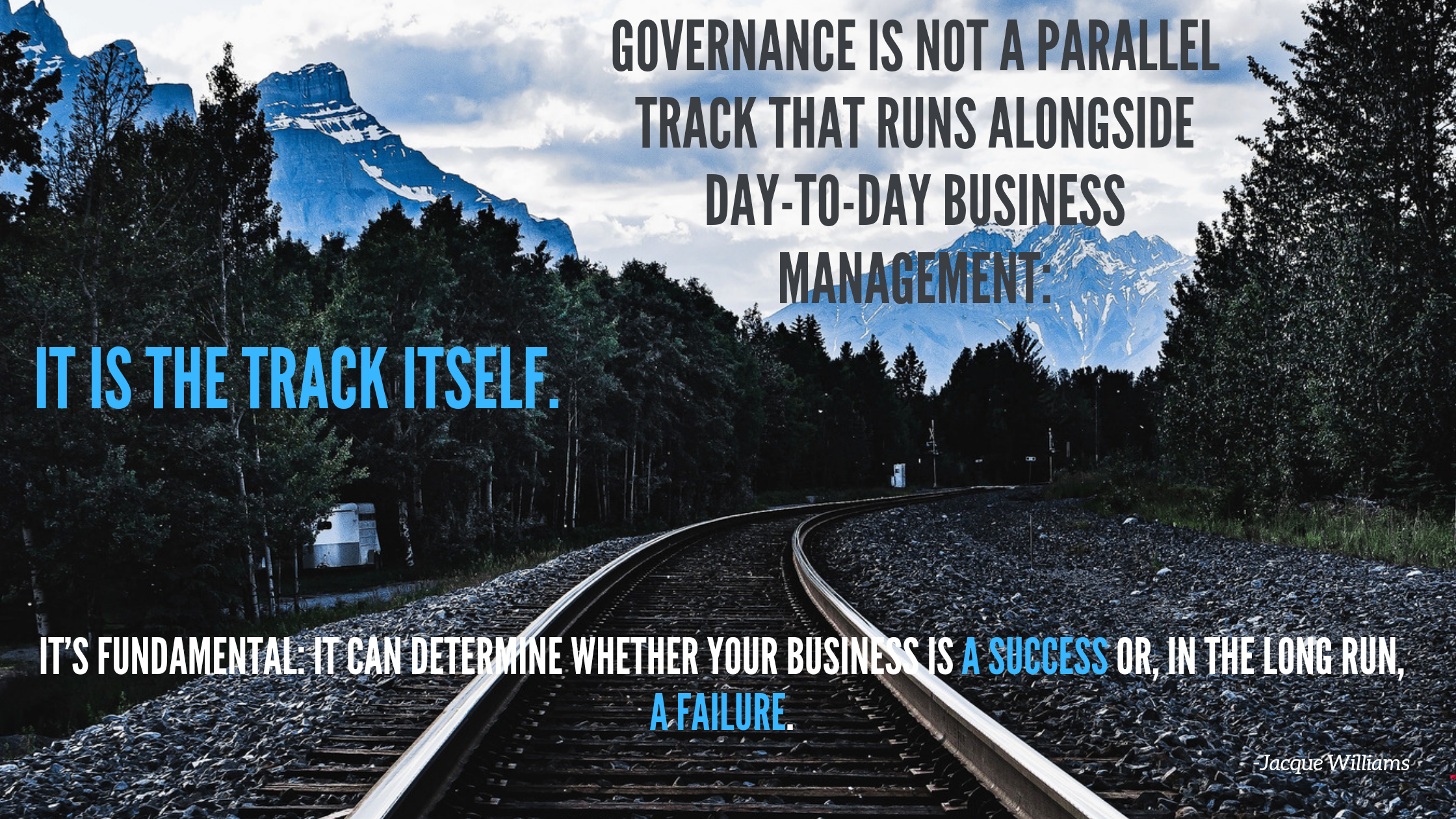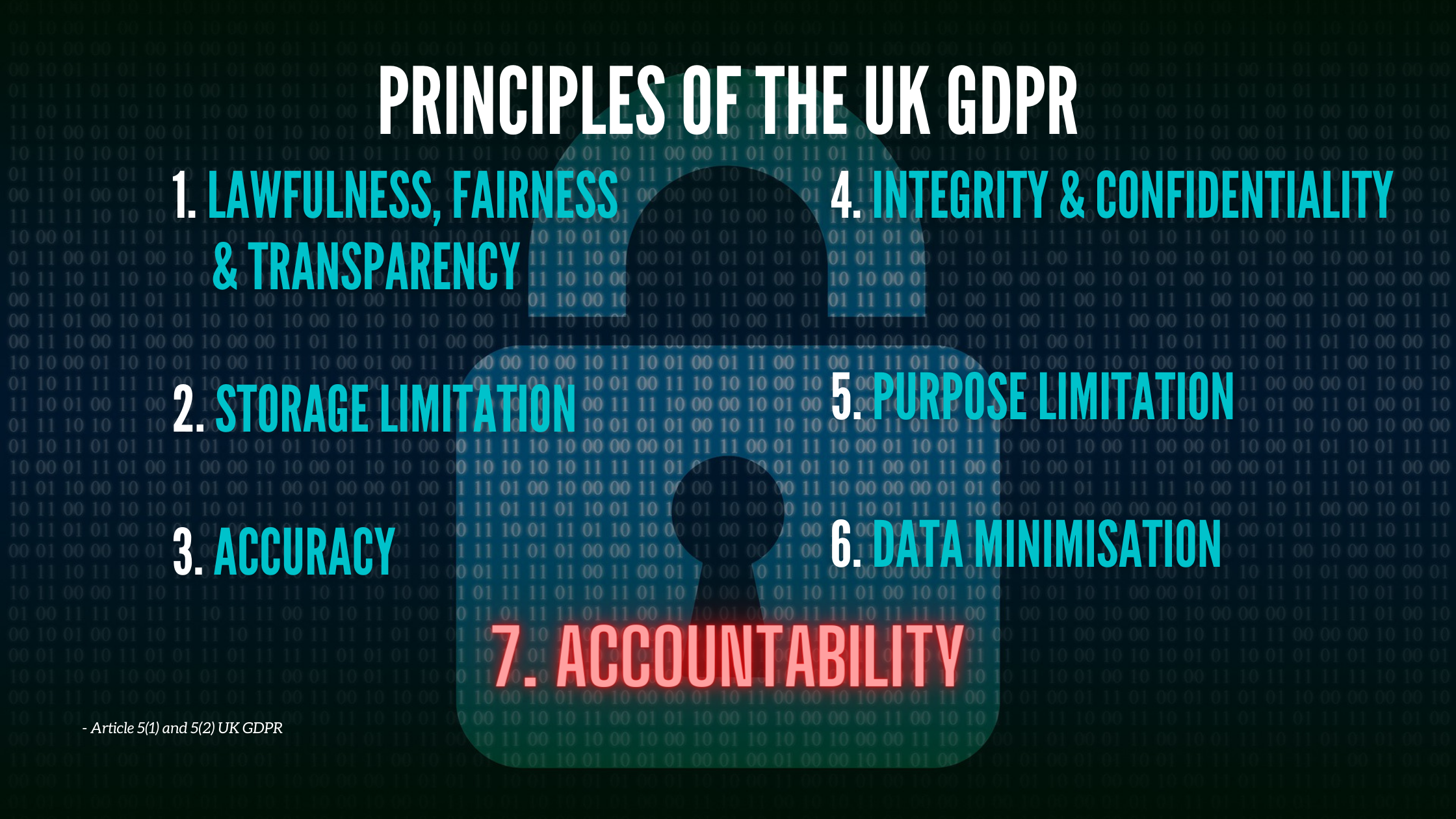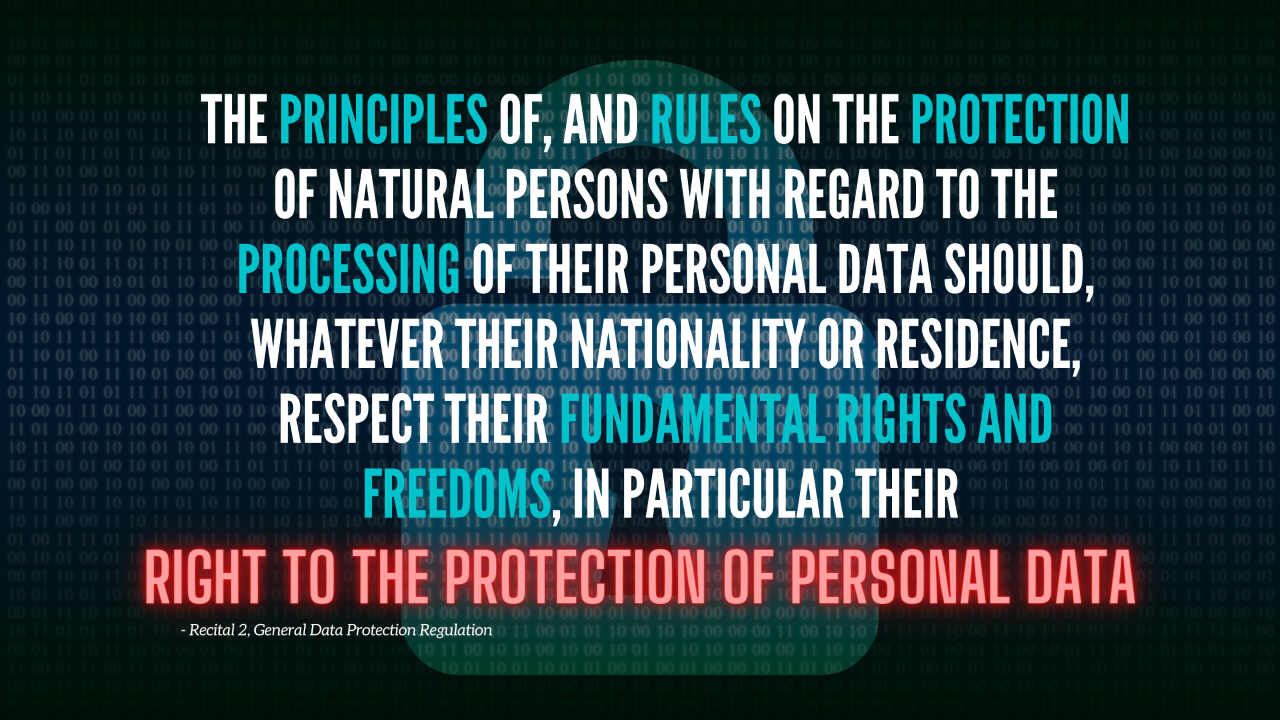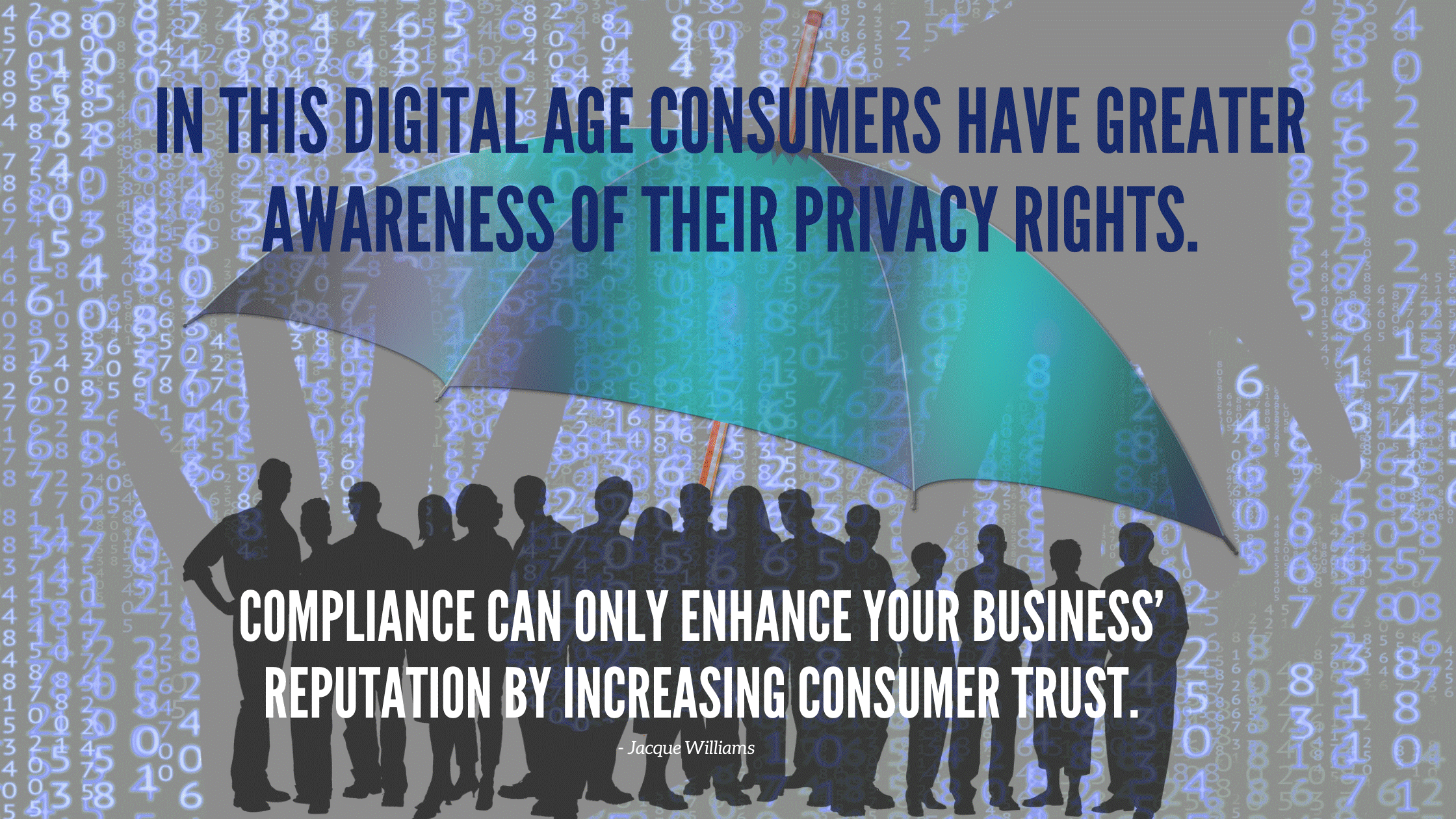So…what do we mean by “Good Governance”, and what does it look like?
If you think “government” you wouldn’t be far wrong, after all, in most jurisdictions, government is the ultimate source of control. Yet this extends to any grouping or association where some form of hierarchy and the necessity for decision-making exists, be it an educational establishment, charitable institution, or business venture.
Governance is the system of oversight.
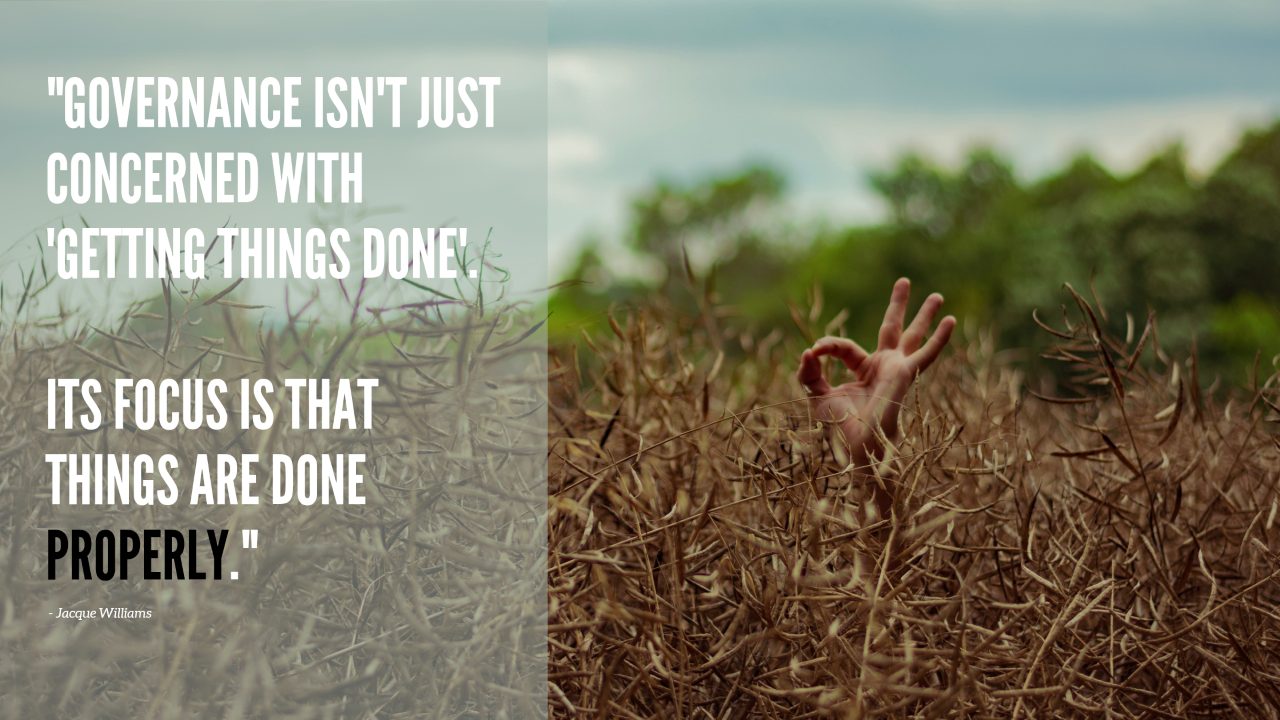
Corporate Governance refers to the process by which an organisation is managed. Good governance means an organisation is managed legally, transparently and ethically – taking a broader view than the traditional singular focus on profitability. In other words, that it is appropriately governed.
How Did it Begin?
A long, long time ago (okay, in 1992), a report was commissioned by the UK government triggered by the very public collapse of several large corporations, such as the Polly Peck consortium and the pension scandal of the Maxwell Group. These failures to practice good governance damaged the credibility of UK financial institutions leaving shareholders mistrustful. A Committee was tasked with scrutinising the practices of these large organisations, particularly concerning their financial reporting processes and the accountability (or lack thereof) of their Directors.
What is now commonly referred to as The Cadbury Report, a well-respected wake-up call for UK business management. One of its recommendations was the establishment of a Code of Best Practice, which applied initially to companies listed on the London Stock Exchange. Where they failed to comply with that Code, justification and thorough explanation was demanded.
Corporate governance has continued to evolve since the foundations established by the Cadbury Report in the early nineties. In fact, there have been over a dozen committees and reviews charged with producing Codes, reports and guidance around internal controls, Board effectiveness, risk management and assurance.
Governance Today
The current provision is the UK Corporate Governance Code, which the FRC (Financial Reporting Council) states, ‘places greater emphasis on relationships between companies, shareholders and stakeholders. It also promotes the importance of establishing a corporate culture that is aligned with the company purpose, business strategy, promotes integrity and values diversity.’
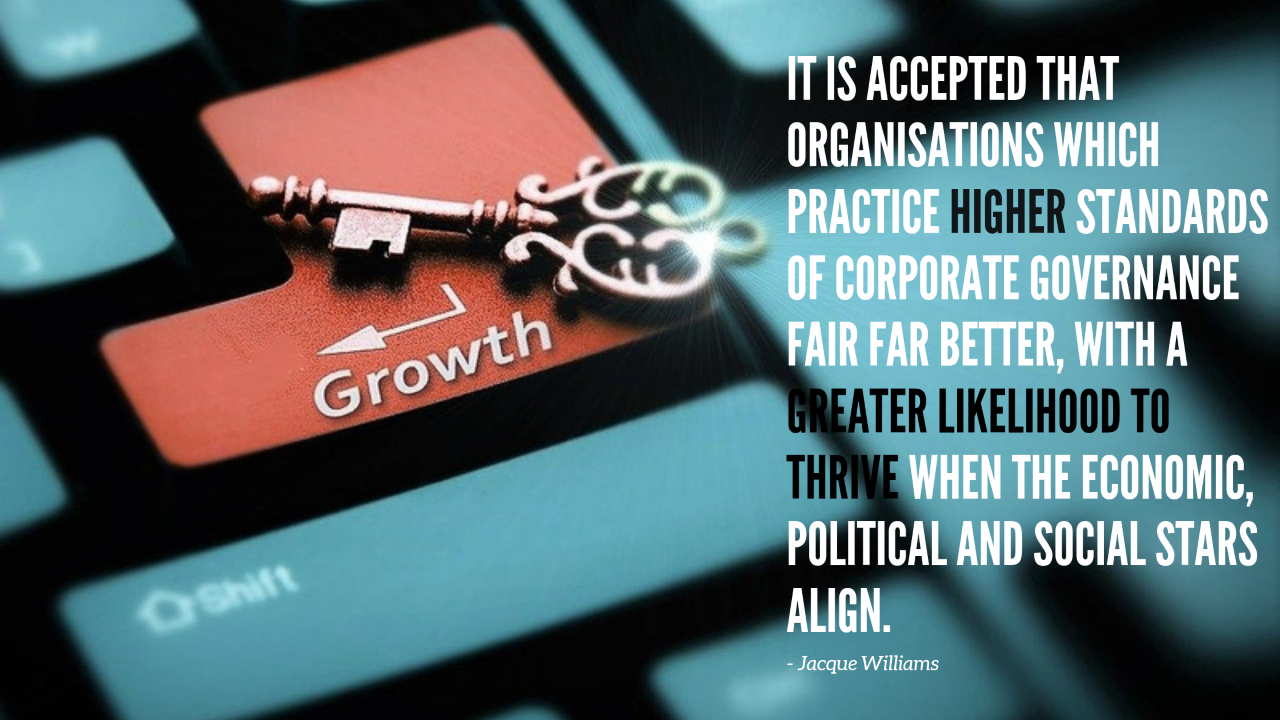
| Shareholder confidence remains strong even during times of uncertainly, they retain their shares in consideration of historic stability which implies endurance and longevity. | ||
| Customers and clients maintain loyal to a brand when its values and wider approach to environmental and social issues align with their own practices and beliefs. | ||
| Competitive advantage is gained through greater access to investment, as lenders and venture capitalists take assurance from the knowledge that management is effectively held to account when making decisions that impact the future of the company. |
Governance for All
So, you may be wondering, where’s the relevance if you’re not about to float your company on the Stock Exchange? To this, all I can say is: Great oaks from little acorns grow. Think about it…
No organisation is too small to embed good governance practices. It is something to consider and start implementing from Day 1: whilst your considering what to name your business and perusing colour themes for your branding – before you open your business bank account! What is your vision? Your mission? Plan your strategy: how will you get there?
What regulations and legal obligations must you adhere to, to establish credibility and give yourself every opportunity for success.
We live in age that places more and more emphasis on doing the right thing as well as performing well, whether you’re a FTSE 100 company or a non-for-profit charity.
Establishing systems of good governance means much more than a box-ticking exercise, and it’s never too late to start introducing these systems. Think of it as that little acorn that you nurture and encourage. Over time, as your organisation develops/grows/expands and increases in complexity, its systems of governance will grow alongside you, taller and broader as the regulatory environment you must operate within continuously diversifies and evolves. That canopy of branches can protect you and your business from a plethora of non-compliance issues, from minor reprimands and penalties to fines that could literally force your business to close.
The Four Pillars
Whilst there remains no specific definition of governance, the four concepts in the below graphic are agreed as guiding pillars of “good governance” worldwide:

The cyclical arrangement illustrates the eternal revolving system of good governance – the practice itself must be regularly reviewed to gauge its overall effectiveness, compliance to changing legislation and alignment to best practice.
If it were to have a start and end point, this would be People. A robust governance regime must be implemented from the top down.
It is the embedding of a culture which requires the buy-in and participation of all members of an organisation.
In Conclusion
Governance isn’t just concerned with things getting “done”. Its focus is that things are done PROPERLY…embracing the principles of accountability, transparency, fairness & responsibility. It’s not a parallel track that runs alongside day-to-day business management: it is the track itself. It’s fundamental: it can determine whether your business is a success or, in the long run, a failure.
